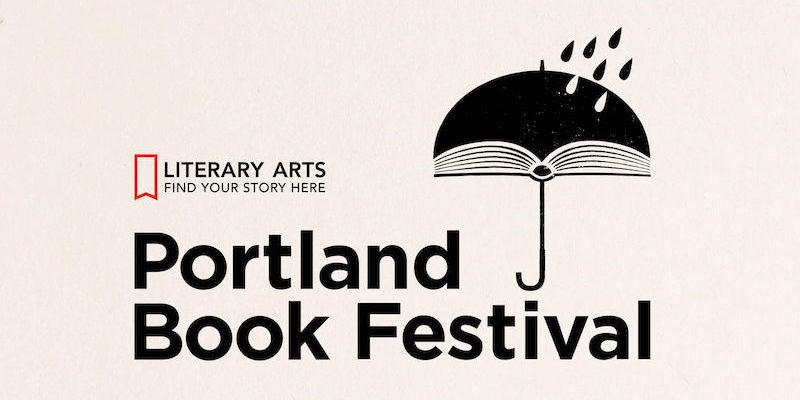
An Open Letter to the Portland Book Festival
“We ask you to say ’no’ to sponsorship from banks that profit from and facilitate the destruction of Palestine.”
We, the undersigned writers & literary organizations, many of whom have been a part of the Literary Arts ecosystem in some way—whether the Portland Book Festival, as finalists or winners of the Oregon Book Award and the Oregon Literary Fellowship, or as attendees or featured speakers of Portland Arts & Lectures—write today to implore Literary Arts to not move forward with either of their historical bank sponsors, Wells Fargo or Bank of America, for this or future year’s book festivals.
As we approach 700 days of Israel’s eradication of Palestinian society in Gaza—the bombing of hospitals, mosques, schools, universities, beachside cafes, shelters for displaced families, the killing of aid workers and journalists and poets, the blockade of baby formula and fortified milk—Israel’s newspaper Haaretz continues to publish articles with headlines unthinkable in the United States. “’It’s a Killing Field’: IDF Soldiers Ordered to Shoot Deliberately at Unarmed Gazans Waiting for Humanitarian Aid,” says one. “’When You Leave Israel and Enter Gaza, You Are God’: Inside the Minds of IDF Soldiers Who Commit War Crimes” says another.
Here in the U.S. it isn’t only silence, however, in the face of these horrors, but the active stigmatization and even criminalization of people of conscience who speak out on behalf of Palestinian life. Tenured teachers losing positions, legal residents stripped of their immigration status, students deported, even the UN special rapporteur for the West Bank and Gaza, Francesca Albanese, now sanctioned by the U.S. government for her advocacy on behalf of Palestine. As writers ourselves, as people whose lives center the power of words, it is of the utmost importance for us to speak into and against this silence and this threat of silencing.
Both Wells Fargo and Bank of America are invested in and profit from the death of Palestinians in innumerable ways—whether Raytheon’s bunker-busting bombs dropped on hospitals, Elbit’s sniper drones, Lockheed Martin’s fighter jets and hellfire missiles, Palantir’s artificial intelligence-generated kill lists, or General Dynamic’s 2000-pound Mark 84 bombs—which produce “instant death” for people within 100 feet and lethal fragments extending up to 1,200 feet—hundreds of which have been dropped on Gaza, one of the most densely populated areas in the world.
Literary Arts has foregrounded many writers who speak truth to power, from Ursula K. Le Guin to Ta-Nehisi Coates, from Viet Thanh Nguyen to Omar El Akkad. In that spirit, we ask you to say “no” to sponsorship from banks that profit from and facilitate the destruction of Palestine, that are deeply implicated in the global arms trade overall and which go against the spirit of the work of the writers you otherwise center. Let us come together to celebrate literature without lending these banks the shine of our collective dreams for a better future, without helping the reputations of those who profit off death in the shadows.
*
Kaveh Akbar, Rabih Alameddine, Kazim Ali, Anna Badkhen, Jazmina Barrera, Alexander Chee, Omar El Akkad, Nikky Finney, Naomi Klein, Robert Macfarlane, Carmen Maria Machado, Maaza Mengiste, Lina Meruane, Eileen Myles, Viet Thanh Nguyen, Torrey Peters, Max Porter, Joe Sacco, Claire Schwartz, Solmaz Sharif, Leanne Betasamosake Simpson, Safiya Sinclair, Dao Strom, Mattilda Bernstein Sycamore, Leni Zumas, Stephanie Adams-Santos, Melissa L. Amstutz, Callum Angus, May Barruel, Lucie Bonvalet, Colleen Burner, Nathan Goldman, Alyssa Harad, John Hart, Rafael Hart, Alissa Hattman, Sara Jaffe, Lydia Kiesling, Patrick Leonard, Cari Luna, Laura Moulton, David Naimon, Jyothi Natarajan, Ben Parzybok, Harper Quinn, Domi Shoemaker, Always Here Bookstore, Bishop & Wilde Books, De-Canon, Gumball Poetry, Independent Publishing Resource Center, Nationale, Postcard Bookshop, smoke and mold journal.
See full list of signatories and add your name here
[UPDATE 09/17/2025]:
The above open letter has received 385 signatures since its July 29 publication.
When reached for comment, a representative from Literary Arts (the community-based nonprofit that administers the Portland Book Festival) confirmed to Lit Hub that this year’s festival will be proceeding with Wells Fargo as its presenting sponsor and issued the following statement:
We are aware of and take seriously the concerns raised about this year’s Portland Book Festival sponsorships. We deeply value the voices of the literary community, and in response we have been in deep conversation with many of those who have signed the letter. Sponsorships help make the Portland Book Festival possible, ensuring broad access to literature, ideas, and public discourse.



















